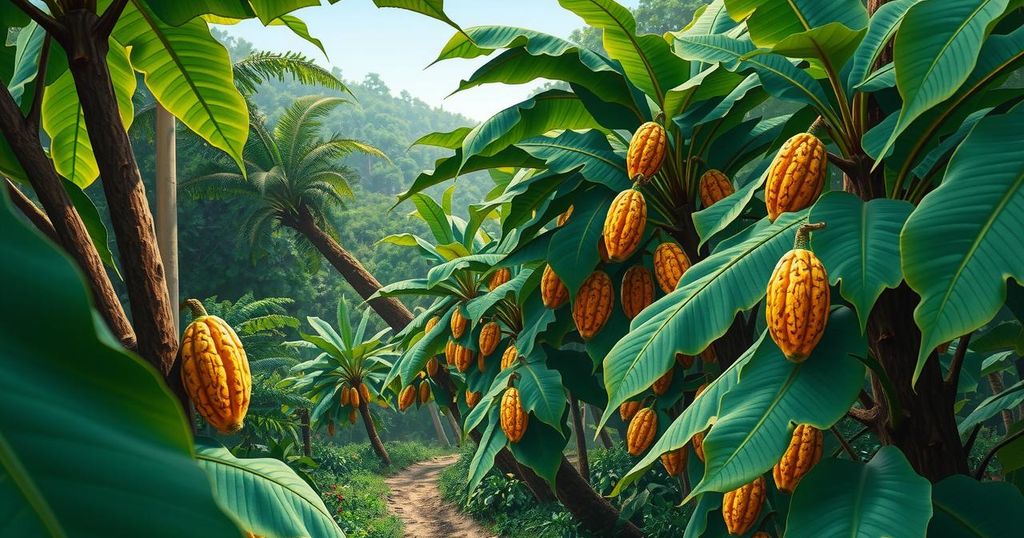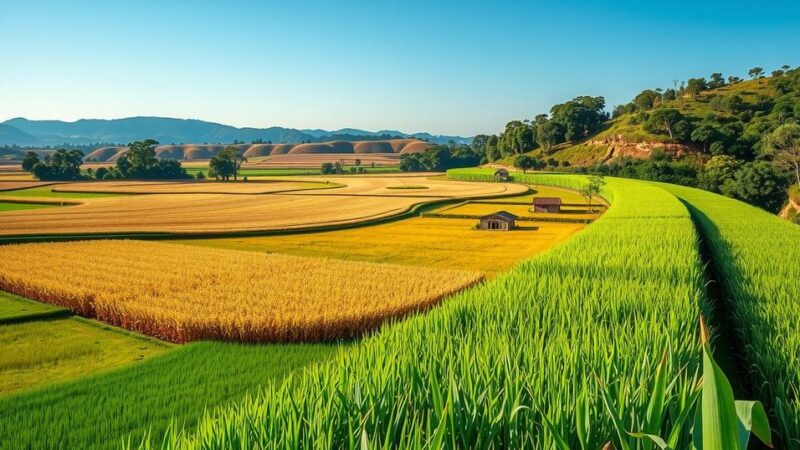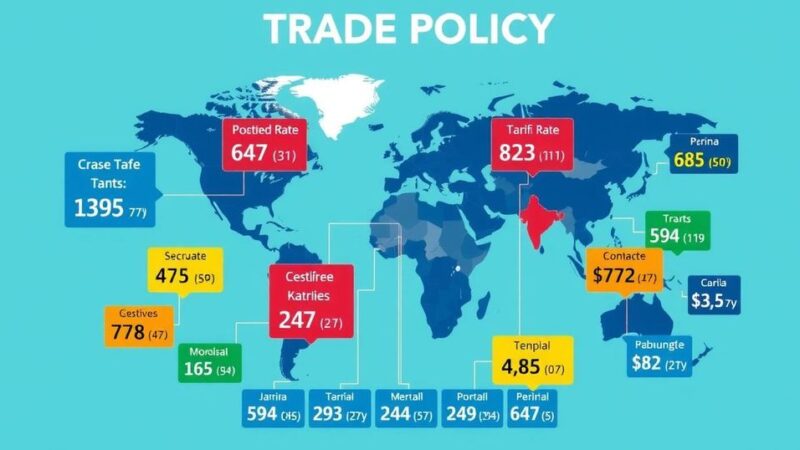Cocoa farmers in Indonesia are adapting to climate change by collaborating with organizations to protect crops. Rising temperatures and increased rainfall are exacerbating pest issues, prompting some farmers to switch crops due to declining yields and high costs. Despite challenges, experts remain hopeful for the industry’s future with better training and financial support.
Thousands of cocoa farmers throughout Indonesia are collaborating with businesses and organizations to combat the adverse effects of climate change on their crops. Increased temperatures and rainfall are facilitating the spread of harmful fungi and pests that significantly threaten cocoa trees. As a result, some farmers are diversifying by changing to alternative crops due to escalating costs, reduced yield, and heightened risks associated with cocoa cultivation. This shift has led to a decline in cocoa supplies and a simultaneous rise in market prices for this commodity. Indonesia ranks as the world’s third largest producer of cocoa, following Cote D’Ivoire and Ghana. Experts are optimistic that with improved training and financial assistance, the cocoa industry in Indonesia will experience revitalization and growth.
In summary, Indonesia’s cocoa farmers are facing significant challenges posed by climate change, with rising temperatures and pests threatening their yields. The industry’s current decline in production, coupled with increasing prices, highlights a critical need for support. Nonetheless, there remains hope for revitalization through enhanced training and financial backing for farmers, potentially leading to a stronger cocoa sector in the future.
Original Source: www.goshennews.com






